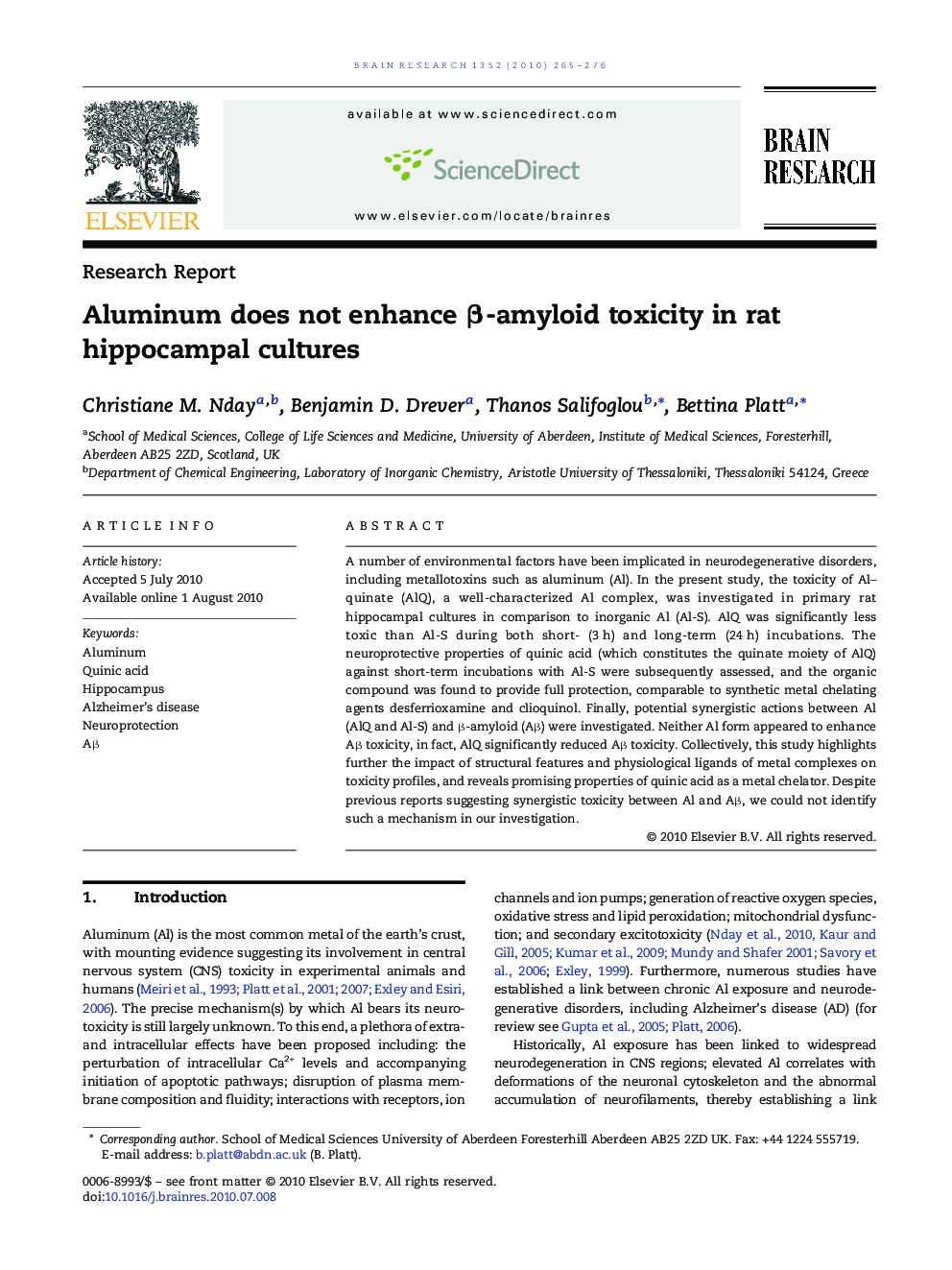| کد مقاله | کد نشریه | سال انتشار | مقاله انگلیسی | نسخه تمام متن |
|---|---|---|---|---|
| 4326567 | 1614087 | 2010 | 12 صفحه PDF | دانلود رایگان |

A number of environmental factors have been implicated in neurodegenerative disorders, including metallotoxins such as aluminum (Al). In the present study, the toxicity of Al–quinate (AlQ), a well-characterized Al complex, was investigated in primary rat hippocampal cultures in comparison to inorganic Al (Al-S). AlQ was significantly less toxic than Al-S during both short- (3 h) and long-term (24 h) incubations. The neuroprotective properties of quinic acid (which constitutes the quinate moiety of AlQ) against short-term incubations with Al-S were subsequently assessed, and the organic compound was found to provide full protection, comparable to synthetic metal chelating agents desferrioxamine and clioquinol. Finally, potential synergistic actions between Al (AlQ and Al-S) and β-amyloid (Aβ) were investigated. Neither Al form appeared to enhance Aβ toxicity, in fact, AlQ significantly reduced Aβ toxicity. Collectively, this study highlights further the impact of structural features and physiological ligands of metal complexes on toxicity profiles, and reveals promising properties of quinic acid as a metal chelator. Despite previous reports suggesting synergistic toxicity between Al and Aβ, we could not identify such a mechanism in our investigation.
Research highlights
► Aluminum-quinate is less toxic to hippocampal neurons and glia compared to inorganic Al.
► Quinate itself can act as a metal chelator and prevent the toxicity of inorganic Al.
► Neither Al–quinate nor inorganic Al enhanced beta-amyloid toxicity.
Journal: Brain Research - Volume 1352, 17 September 2010, Pages 265–276